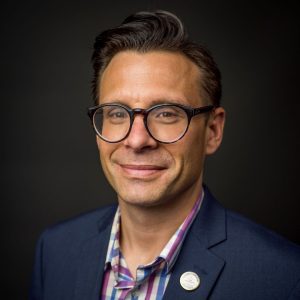One of the interesting aspects of living out my ministry calling on the West coast has been dealing with the negative impressions some have of pastors who work in this context. For example, when I first moved west, one person told me, “The only pastors who move to the West are those who can’t get a good church in the South.” Another person asked me, “Why would you take your family into such a secular place?” And my favorite, “Why do you need to go ‘up north’ and make Christians out of them Yankees when we need good preachers down here?”
These comments used to make me angry. Now, they are either amusing or exasperating—depending on my spiritual temperature that day! And, thankfully, as Southern Baptists have developed a more national identity, the frequency of these comments has declined. May that trend continue.
Working with pastors in the West for more than 30 years has given me a more positive perspective on their identity. First, pastors are in the West because they really believe God called them here. They are not interested in getting a “good church in the South” or anywhere else. They are in the West because they want to be. Second, they accept secularism and lack of a Christian subculture as facts, not as threats. They are not afraid to raise their families here, knowing their responsibility to nurture a healthy family is not determined by the difficulty of external circumstances. Finally, they are passionate about reaching people in what most Southern Baptists consider a missional context. They are not afraid to take on the missionary aspect of pastoral ministry in the West.
There is also some insider knowledge, often shared quietly among Western pastors, about why we enjoy living and ministering in the West. We enjoy the frankness and openness of the people. Most are not Christians, and there is no cultural Christianity clouding the waters of defining true commitment. As my oldest son told me once, “In Oregon, you’re either a Christian or you’re not. No reason to fake it.” In some ways, evangelism is easier in the West.
We also enjoy the greater freedom to develop creative ministry approaches and try new methods to reach people. While “we have always done it this way” is sometimes heard in the West, it is not voiced as stridently as in other places. We also enjoy the greater unity we have with other pastors. Pastors in the West know they need each other—both within and across denominational lines. We are less eager to argue and divide over secondary and tertiary issues. Because we know we need each other, we find a way to get along.
Pastoral ministry in the West has its challenges—fewer well-trained leaders, less financial resources, more limited church facilities, less cultural support for churches, and greater distances to travel for meetings. But the positives make taking on these challenges worth the effort.
As Southern Baptists come to Anaheim this summer, many will meet Western pastors (who will be attending their first and perhaps only annual meeting). As you meet these remarkable men, my hope is your image of western pastors will be changed in positive ways. You will discover good men, sacrificing much and working hard, but content they are in God’s will and serving in the best place on earth. May God call more men to pastoral ministry in the West!
Read More

Hope in Suffering
Gateway student Matt Bodden is an evangelist who is ready to answer the question of suffering with the gospel.

The Gateway Journal of Theology Inaugural Issue
Read all new articles in the inaugural issue of The Gateway Journal of Theology.
Listen
Prophets | Daniel Part 2
Now with the historical portion of Daniel done, Dr. Wegner takes us through the visions of beasts and years. All these figures intending to show us something. What does it all tell us about God?

Theology and Missiology with Dr. Peter Lillback
Rev. Dr. Peter Lillback, president of Westminster Theological Seminary, PA, and founder of The Providence Forum, joins Dr. Hopkins to chat about the inclusion of young children during the main services in church, the religion and theology of George Washington, and the

Watch

Jonathan Edwards and the Asbury Revival
Chris Chun and Chris Woznicki discuss the signs of true revival, signs of the work of the Holy Spirit, and why it is important to critically assess the characteristics of revival in a spirit of charity.

Jonathan Edwards and the Baptists | Douglas Sweeney, Nathan Finn and Chris Chun
Dr. Douglas Sweeney and Dr. Nathan Finn joined Dr. Chris Chun for a panel discussion on Jonathan Edwards, recorded live at the SBC Annual Meeting in Anaheim.




